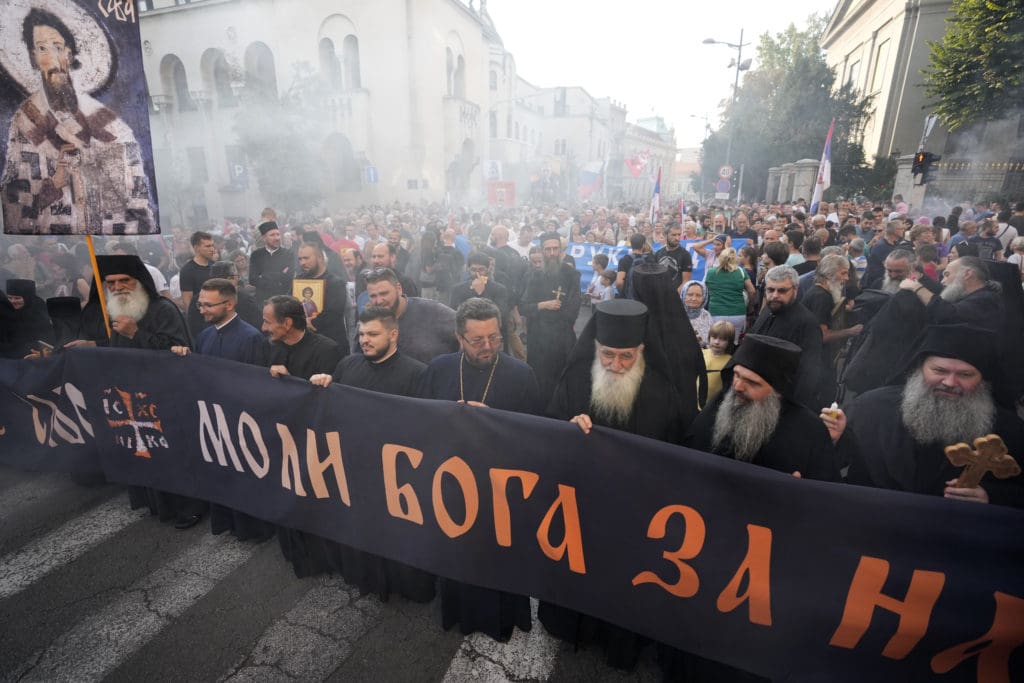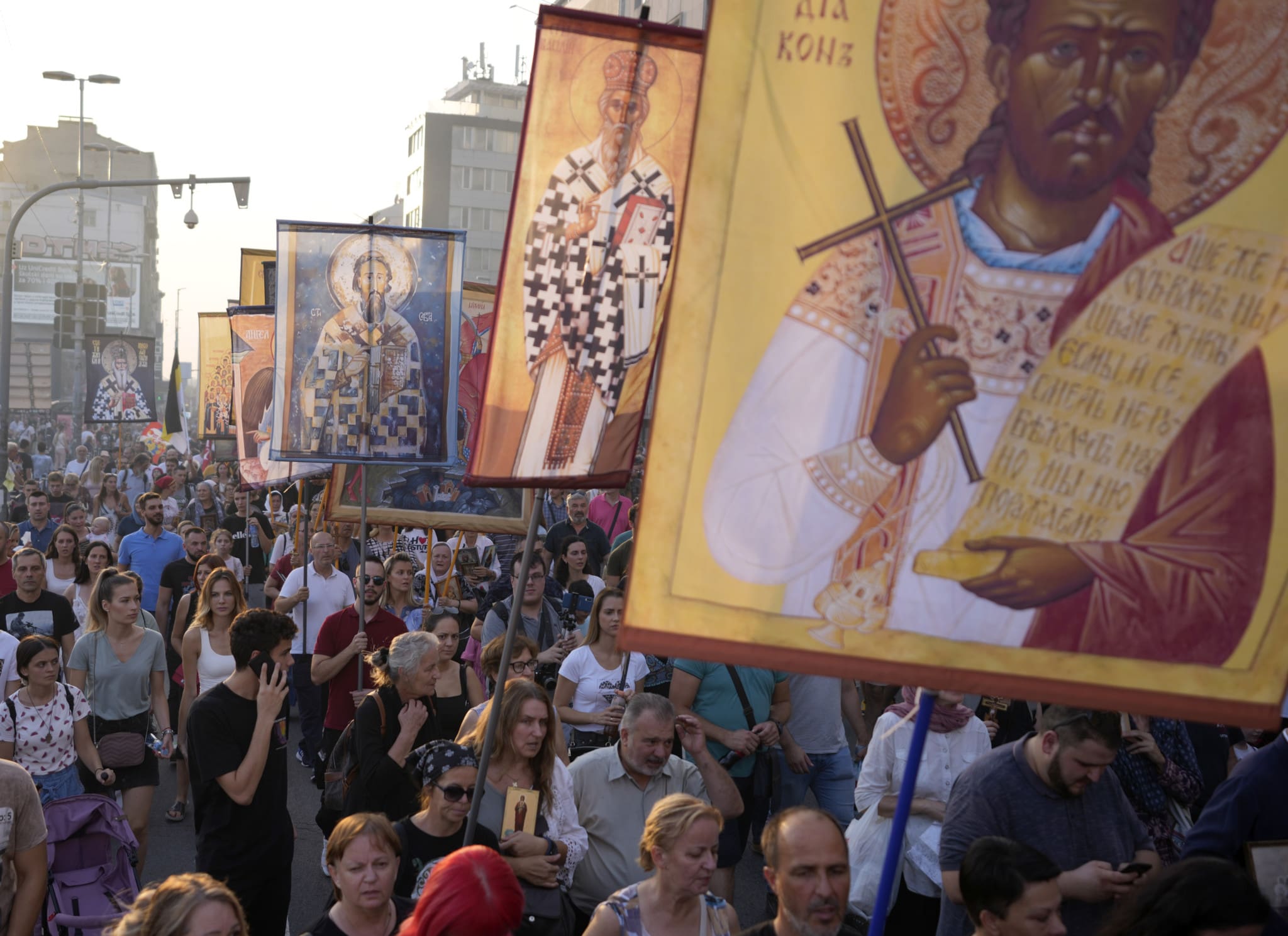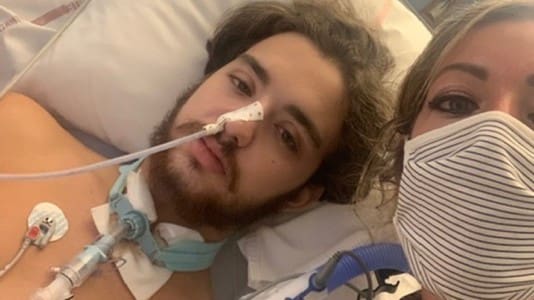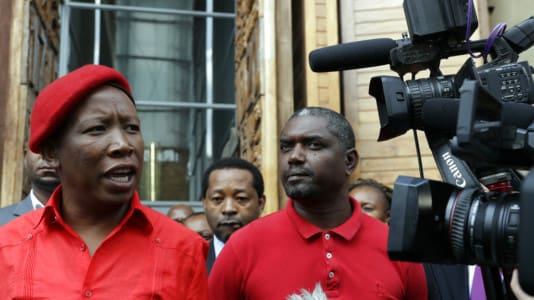Following mass protests against the controversial LGBTQ EuroPride event, the Serbian government initially responded by canceling the Sept. 17 event in Belgrade; however, another top official later said the event was only postponed.
Although it remains unclear what exactly the event’s status is, Serbia is sharply divided over EuroPride, which was originally set to be held on Sept. 17. The conservative country saw up to 100,000 people protesting against the event, but NGOs and human rights groups, often funded by international backers like billionaire oligarch George Soros, are vocally opposed to canceling the event.
The country’s conservative-populist government has responded by banning the event on the scheduled date, but as of now, it remains unclear if it could occur on another date.
Serbian President Aleksandar Vučić announced the cancellation of EuroPride last Saturday, in response to which the organizers stated that only the organizer can cancel an event, and they are not planning to do so.
President Vučić justified the need to cancel the gay parade with the ongoing dispute with Kosovo and the difficult foreign and domestic political situation. As he said, he is aware that this violates the rights of minorities, but in the current situation, it is the right step.
Following the president’s announcement, the Serbian government also issued a statement, according to which, due to the political situation in the region and rising tensions, as well as in order to preserve the peace and security of Serbia’s citizens, the government believes that the conditions for holding EuroPride are not currently suitable.
On Sunday, thousands of people took to the streets to protest against the parade, and on Monday, Prime Minister Ana Brnabić stated that it was not a ban but that the event was postponed due to the country’s political situation.
The government added that some extremist groups could abuse the situation and attempt to destabilize Serbia.
In response to the statements, the organizers announced that they would definitely organize EuroPride. Marko Mihailovic, the Serbian coordinator of the event, also announced that the organizers would file a complaint if the police banned the march. He added that the organizers were surprised by the statement of the president and the government, because two days earlier they had consulted with the representatives of the government, and at that time there was no sign that they wanted to cancel the international event. The Serbian opposition and human rights groups also supported the organizers and announced they will take to the streets on Sept. 17 despite the ban.

As a response to the complications surrounding the organization of EuroPride, thousands of religious demonstrators took to the streets on Sunday to protest against the event. Demonstrators held up images of saints as they marched from the Saint Sava Orthodox Cathedral to the Belgrade Pride Center, occasionally pausing to pray for the event to be banned. Several priests were among the protesters.
On Monday morning, Prime Minister Ana Brnabić did not talk about the ban on Serbian public television but instead addressed the organizers with the following comment: “I do not want to curtail anyone’s constitutional rights; however, we must take into account the consequences of holding such an event,” she said.






